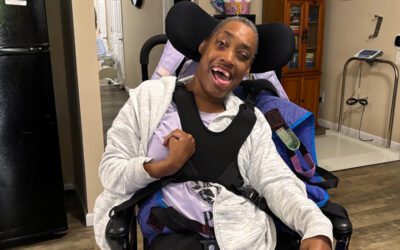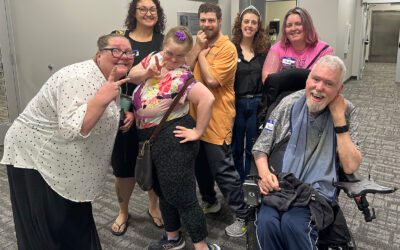Shared Living
Provider ApplicationA Host Home or Shared Living is an arrangement where a client chooses to live with another individual, couple or family who provides support in their home.
After choosing shared living, Emmaus will work with the team to determine the types of supports desired. The individual with a disability moves in with the caregiver to share the home and receive supports.
Here’s how to become a host home provider
Request a Meeting
Complete a Home Inspection
Find the Perfect Match
So Fill Out Your Application Today, and in the meantime, read about a current host home provider’s experience and start planning your own story.
Hear From A Provider
Life As a Shared Living Provider
After being a stay at home mom for 5 years, Melissa decided she was ready to put her passion of helping people to good use. For Melissa, helping individuals with developmental disabilities runs in the family. She was introduced to the community by her daughter, who had friends in school with special needs. In December of 2014, Melissa began working for Emmaus as a Direct Support Professional (DSP).
The first day she started, she walked in on some of the ladies eating lunch. Kathleen immediately got up from the table and gave Melissa a hug, establishing an immediate connection. They started attending pottery class and going to bowling leagues together.
Melissa received a promotion and started managing the team providing services for Kathleen’s home, and not too long after was promoted again. After taking on a supervisory role, Melissa began to miss the connection she shared with Kathleen.
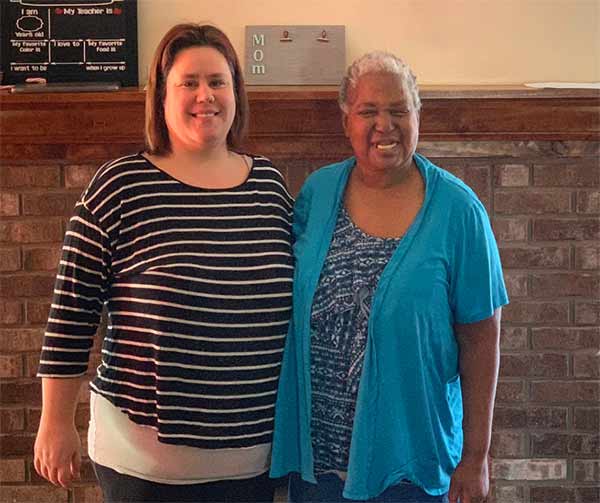
Melissa started talking to her fiancé about expanding their already large family of 8 kids. He agreed, and Kathleen began trial periods being part of Melissa’s family by staying over the weekend and interacting with the kids. The kids loved having Kathleen over, and Kathleen expressed her happiness back. They were ecstatic when asked if Kathleen could move in with them and in September of 2017, Kathleen officially became part of the Hall family.
Kathleen was able to finally have a pet, and now keeps up with all the joys and chores of having a dog. They started attending local fairs and found out Kathleen loves riding rides. Melissa and Kathleen’s favorite memory was their trip to Disney World last summer. Kathleen discovered she loves roller-coasters, and now goes to Six Flags frequently.
Kathleen is laid back, outgoing, and loves being included in family activities. As soon as Melissa’s son gets home from school, he pulls out a board game and asks if Kathleen will play with him. She gets to go to high-school football games and is always dancing on the sidelines. After attending Planet Fitness 3 days a week, Kathleen has seen some weight loss. Her case manager has also witnessed behavioral improvements and wants to start working on more advanced goals in her Individualized Support Plan.
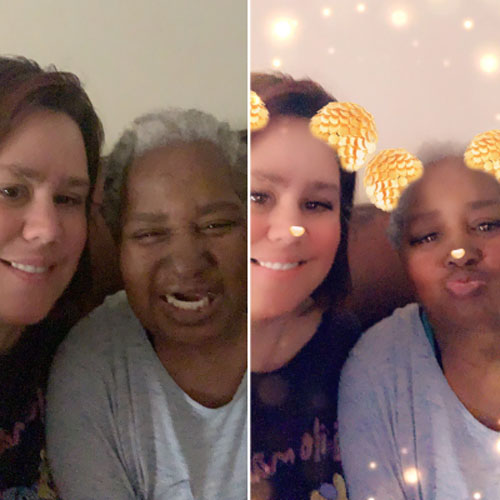
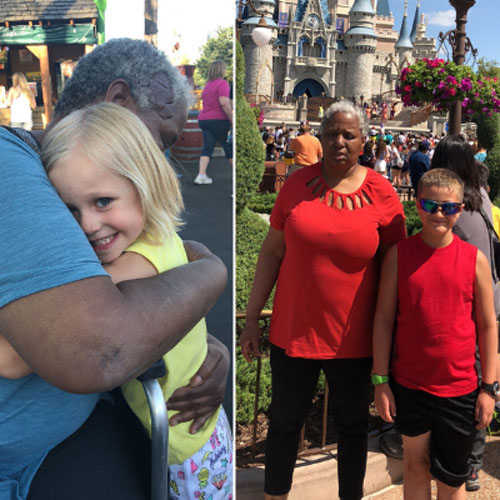
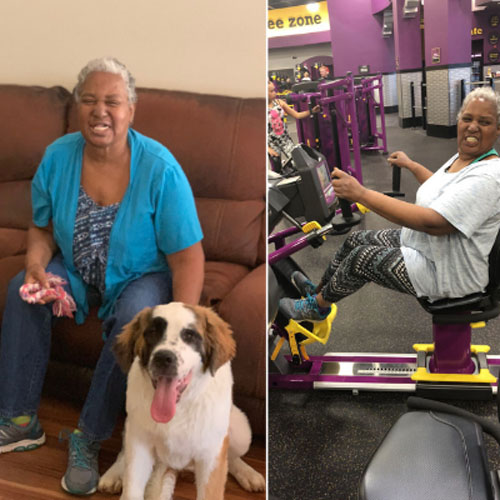
Shared Living
What is Shared Living?
A Host Home or Shared Living is an arrangement where a client chooses to live with another individual, couple or family who provides support in their home.
After choosing shared living, Emmaus will work with the team to determine the types of supports desired. The individual with a disability moves in with the caregiver to share the home and receive supports.
Who Can Provide Shared Living?
Anyone who wants to share life with an individual with a disability. Single parents, empty nesters, families, etc…
There is an initial matching process to find a Host Home. Emmaus focuses on lifestyle preferences, cultural values, family/friend involvement, compatibility with animals and children, and more.
Once a match is found – visits, transition meetings, equipment needs, and modifications are scheduled if needed.
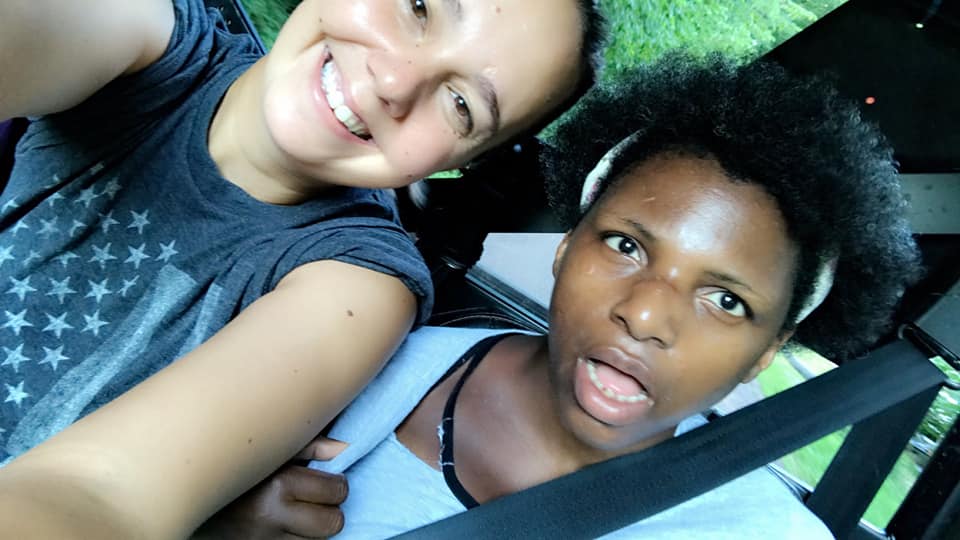
FAQs
How Are Shared Living Providers Compensated?
Hosts are independent contractors who are paid a monthly for both service hours and housing (room and board) Hosts are not Emmaus employees and will have to provide their own retirement savings and medical, dental, and vision benefits. Hosts will be provided with a 1099 tax form each year.
How Much Are Hosts Paid?
Every situation is different based upon the client’s needs. The average monthly payment to hosts range based upon the client’s needs. Emmaus does not deduct any federal, state or local taxes from the host’s monthly payments. In fact, hosts may avoid paying income taxes on any income paid for being a host home. Emmaus recommends hosts seek counsel from an accountant.
Does the Host Have to Pay for the Client’s Medical Care and Prescription Drugs?
The client will carry their own medical insurance. All clients have Medicaid, many also have Medicare. The host is not responsible for paying for medical appointments and prescription copays.
Does the Host Have to Provide Transportation to the Client?
Yes, the host is responsible for transporting the client to all activities outside of the home including but not limited to day programs, competitive jobs, therapy, medical visits, dental visits, vision visits, appointments, and social/recreational activities. The host must have a dependable vehicle and keep current insurance on all vehicles used to transport the clients. The host will not paid for mileage or upkeep on their vehicles.
How Long is the Commitment?
The host home agreement is a yearly contract. Hosts are asked to recommit to the agreement yearly.
Can Hosts Continue to Have Family & Friends Visit?
Hosts are encouraged to continue to live the way they always have. For instance, hosts who have game night with their friends every Friday, should continue doing so. Visitors to the host’s home do not have to go through any additional vetting (like background checks). Hosts do not have to report when visitors
come to their home. If a friend or family becomes a new household member, background checks must be completed on individuals 18 years or older. A house guest that stays overnight for more than 2 weeks or uses the home as a primary residence would need to favorably complete a background check.
Is Everyone Living at the Home Considered a Host?
No. The host is a designated person with whom Emmaus names as the host in the services agreement (contract). This is the person responsible for providing care to the client. Those living in the host’s home are not required to provide care to the client. However, anyone living in the home that is over the age of 18 will need to complete a background check. In addition, a house guest that stays overnight for more than 2 weeks or uses the home as a primary residence would need to favorably complete a background check.
Can Someone Else Living with the Host be Paid to Provide Care?
Possibly. If the planning team is in agreement, a member of the Host’s household can provide relief support. This person must complete all necessary trainings and requirements to provide and be paid for Relief Support.
Can Hosts Have Pets?
Each client has an ISP that will identify if they are able to live in a home with pets. If the host is a pet owner, Emmaus will only match that host with clients who are able to live with pets.
Does the Home Need to be a Certain Size?
It is important for the client to have their own room. They may share a bathroom with the other members of the home. The size of the home is not nearly as important as the type of care the host will provide to the client. However, a home study will be completed by Emmaus; the purpose of the home study is to assess the environment and determine if it will meet the needs of the client.
Is the Host Responsible for Passing Medications?
Yes, the host is responsible for ensuring the client’s medical needs are handled timely and appropriately. The Host will be trained in medication administration. In addition, the host should advocate for the client and act under the guidance provided in the ISP.
Do Host Providers Need to be Married?
Anyone able to provide a safe home, pass a background check, complete annual training, and maintain compliance is eligible. Hosts can be married, single, retired, college-aged, have children in the home, or be empty-nesters. In some cases, hosts can even have a job outside of the home.
How Does a Host Get Trained?
Emmaus provides all the required training for hosts at no cost. Training includes but is not limited to: First Aid/CPR, Medication Administration, Clients Rights, Confidentiality and HIPAA, Person Centered Planning and Person Centered Strategies, client specific training, and positive behavioral supports. In
addition, Emmaus will provide training on electronic documentation requirements.
Are You Together 24/7?
Every client has a set number of relief support hours so a host can have time alone including time away from the client. The average number of relief hours ranges from 150-260 hours per month. Relief hours are funded by Department of Mental Health.
What Are Relief Hours?
Relief hours are given to provide the host a break. Every host home uses relief hours differently. A few examples are:
- To go on vacation
- To attend school
- To attend a second job
- To participate in hobbies
- For uninterrupted time to complete paperwork, chores, or errands
- To attend weddings, funerals, and family events Relief staff, hired by the host, will care for the client when relief hours are in use.
*We will get into relief staffing and relief pay during the informational session.
Are There Inspections?
It is important for the client to have their own room. They may share a bathroom with the other members of the home. The size of the home is not nearly as important as the type of care the host will provide to the client. However, a home study will be completed by Emmaus; the purpose of the home study is to assess the environment and determine if it will meet the needs of the client.
Stories of Success
Sitting Tall, Living Fully
We believe that support should go beyond the basics. It is about seeing opportunities for improvement, listening to what our clients need,...
Shaping Stories, Strengthening Voices
At the recent Missouri Chapter of the American Association on Intellectual and Developmental Disabilities (MOAAIDD) “Telling Your Story”...
Spring is Here! The Emmaus Spring Messenger Has Arrived
Spring has arrived—and with it, Emmaus’ Spring Messenger. In this issue, we share moments that remind us of what is possible when the...

